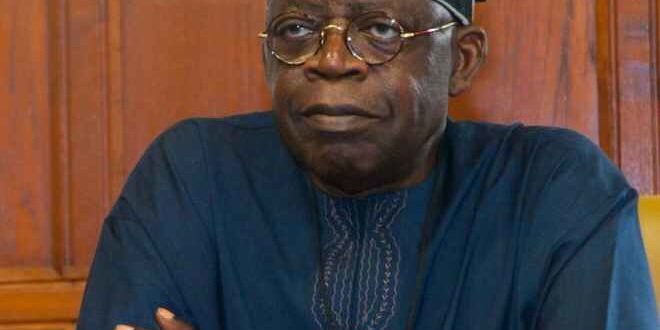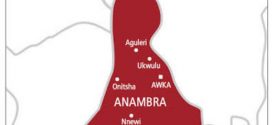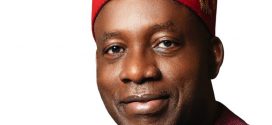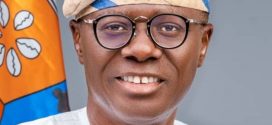By Femi Odere
It is meet to, once again, interrogate Festus Adedayo’s latest piece on Friday, August 17, 2018 with the above title in the Tribune newspaper which also appeared in some of Nigeria’s major online newspapers and other social media platforms just as this writer did sometimes in November of last year in an article that this ace columnist titled “Tinubu, why you must discuss Buhari, 2019.” For starters, Festus Adedayo is the chairman of the Tribune Editorial Board. It probably wouldn’t have been necessary to respond to this piece because we’re in an election season in which torrents of interventions with pre-conceived, downgrading narratives against President Buhari and whoever is prominent enough that may aid his re-election are bound to drench the public space as the nation gets closer to the 2019 general elections. And one must also come to terms with the fact that these narratives—-no matter how contrived and outlandish from critics and opinion molders—-cannot all be pushed back. The 2019 elections, particularly the presidential poll, has unhinged Nigerians across socio-economic and political strata since Buhari publicly declared his intention to re-contest in April. Just as the political class have never been so agitated and discomfited (as it did in 2015 prior to the presidential election) about Buhari’s bid for re-election—-let alone his prospect of winning again—-other major stakeholders in the Nigerian project such as a significant segment of the Fourth Estate that represents various and opposing political/economic interests and some of its members, have never felt unsettled about Buhari and his government that frenetic efforts are now being gradually deployed to weave narratives that are geared towards disrobing the man and his administration in the public space. This, it seems to me, is where Adedayo’s piece should be safely situated. But it should be pointed out that one’s urge to engage Adedayo’s piece is much stronger than the inclination to ignore not only because of his inability, if not unwillingness, to provide his readers with the necessary proofs in his assertions and his presentation of half-truths as facts (as we shall see presently), but the fact that he is a serious-minded columnist and one of the few credible voices in the Realm.
While Adedayo’s creative music analogy with which he described the inherent contradictions in the Nigerian condition that has stunted, if not arrested national growth and prosperity can hardly be faulted by discerning minds and critical observers of Nigeria’s socio-economic and political space, using the same analogical presentation to describe President Buhari as the embodiment of all that is wrong with Nigeria was not only disingenuous but reckless. Also, Adedayo’s false presentation of a serious fight for the soul of the Southwest geo-political region between Asiwaju Bola Tinubu and other power blocs in the region was not only an attempt to, once again, cause disaffection among the region’s progressive camp (as he did in his previous article referenced above), but crying wolf when there is none.
Adedayo may have thought that it was needless to “detain” his readers with what he described as the “indices of current governmental failure which we all know and acknowledge” but he, nonetheless, surreptitiously and illegally ‘arrested’ President Buhari with his false claims that “a gasping national economy under the PDP which Buhari stiff-neckedly dragged into statis of recession by his first six months of governmental prevarication” cannot be any farther from the truth. Recession doesn’t happen on a nation within six months, let alone because of a president’s inability to fill some slots with political appointees in the federal bureaucracy within that period. Recession, by its basic definition, is a period of temporary economic decline during which trade and industrial activity are reduced, which is generally identified by a fall in the Gross Domestic Product (GDP) in two successive quarters. The incontrovertible evidence is already in the public space that the seed of recession was ingorantly, if not blatantly planted by the Jonathan administration in its reckless and unprecedented looting of the country’s treasury that it had started (unbeknownst to Nigerians) to borrow just to pay the salaries of federal workers before the 2015 general elections. It was this seed that coincidentally germinated (which it must) almost immediately President Buhari mounted the presidential saddle. It should also be noted that despite not appointing his ministers in six months—-which Adedayo misled his readers to believe led to the country’s recession—-President Buhari quietly but deliberately slayed the recession dragon he had no hand in creating within two years of his administration to the consternation of the international community and world financial bodies. Why Adedayo failed to acknowledge this verifiable evidence beggars belief?
Adedayo’s other “indices of current governmental failure” was what he believed to be “the shocking appointments of characters with very smelly apparels worse than the Goodluck Jonathan era into his (Buhari) cabinet and major governmental offices” and the “wave of corruption which reportedly dwarfs the Jonathan era” can only be described as a baseless characterization of the Buhari administration that went too far. While it should be admitted that the white Babanriga of a very few officials in the Buhari presidency have been smeared by corruption that the president ought to have swiftly expunged from his government to send a strong signal that he has a low tolerance for corruption by any members of his team, Adedayo’s characterization of the corruption in the present government as dwarfing the runaway, grand corruption in the “Jonathan era” only showed his disdain for the president. It is one thing to be disdainful of President Buhari which is within the purview of the writer’s inalienable rights, but it is quite another to take this disdain into a new and ridiculous low with the portrayal of the Buhari government as “a government which manifests an intolerant temperament towards dissent comparable only to that of Hastings Kamuzu Banda of Malawi” who “ran a totalitarian government in the former British Nyasaland where he murdered and tortured opponents.” Pray, how many political opponents has President Buhari murdered and/or tortured? Rather than this patently baseless and reckless accusation that has no shred of evidence, perhaps what ought to be brought into focus here is that Nigerians expect the president to exercise his legitimate constitutional power in a representative democracy to aggressively obliterate the nation’s small but very powerful basket of deplorables who has, and continues to bring the country and her people to grief and not be timid in exercising such powers. One cannot but wonder if Adedayo cares about what this gross and wild characterization of Buhari has done to his hard-earned credibility.
Perhaps in his attempt, if not his desperation to disparage President Buhari and anything close to him, Adedayo shoveled the All Progressives Party (APC) into his mixed bag within which there are “indices of current governmental failure” because of his belief that the party gifted Bukola Saraki the senate presidency. Again, nothing can be farther from the truth. While it is needless to go into how Saraki became the senate president as the details of his own admission of ambush in clinching the Number 3 position are in the public domain, Adedayo should be reminded that the APC never intended Saraki to assume the presidency of the red chamber from inception. After his most perfidious show of shame never witnessed in the country’s democratic history and probably not in countries that practices representative democracy with his reckless disregard for his party, Saraki also thumbed his nose at his party by making Ike Ekweremadu, a member of the opposition Peoples’ Democratic Party (PDP) his deputy Senate President to the astonishment of not only the Nigerian people but the entire world.
One was not surprised that Adedayo threw the Southwest geo-political region into the “APC internal contradictions” because the region is billed, once again, to be the epicenter of the 2019 presidential election battle. As a result of this, a grand narrative must be created in order to play the region’s major power blocs in the progressive political spectrum against each other for a pre-determined political/electoral objective. Just as the Southwest was the decider of the presidential trophy in 2015, one can also make a safe bet that the region is probably where the final outcome of the 2019 presidential poll would be determined. The columnist’s assertion that the literal absence of Asiwaju Bola Tinubu in the “various seismic political events that gripped the country recently” was due to the fact that “the APC leader is fighting the battle of his life in the hands of a political party he helped midwife from infancy and children he fathered from his political groins” cannot be anything but falsehood couched as the truth more so as Adedayo failed to present credible evidence to support this assertion. Again, what evidence there is that “an internal coup to politically castrate the former Lagos State governor is currently afoot and [that] its outcome may be fatal to his political future?” This is simply nothing but a red herring not only to portray other major political players in the Southwest as being at loggerheads with Asiwaju, but for the region’s electorates to perceive them as ingrates. “Amosun’s proximity to the Villa” is by virtue of being a governor (and governors from time to time do make cameo appearances at the Villa to brief the president about issues in their states) and has absolutely nothing to do with “Asiwaju’s untrammeled hold on the South West” being “directly threatened” by the Ogun State governor. Why creating a political schism when there is none?
In his further attempt to apprise his readers of how the Southwest is seriously ailing due to uncontrolled political treachery by some of its major players in politics, that Adedayo would have postulated that “sensing a perceived tenuous loyalty of Fayemi to him, Asiwaju reportedly flirted with the enfant terrible of Ekiti State, Ayo Fayose, to the chagrin of the War Study scholar” was simply beyond belief. Since he didn’t avail them of how Asiwaju “flirted” with the Ekiti State governor to Fayemi’s “chagrin” the only option of a reply for one is that there is no reply. What should be replied, however, is that Fayemi should be left out of all these needless permutations of chicanery to face his new and onerous task of reclaiming Ekiti State and restoring its values which has been criminally desecrated by Ayo Fayose, more so that the Governor-elect has repeatedly said publicly that the so-called fight between him and Asiwaju was nothing but figment of the imagination of the purveyors of such rumour. While one should appreciate Adedayo’s consistency in keeping his readers informed about issues of public interest, it is, however, a degradation of his credibility when public affairs are presented with such chronic lack of proofs as evidenced in this recent piece.
Femi Odere is a media practitioner. He can be reached at [email protected]
 Hottestgistnaija.com
Hottestgistnaija.com




